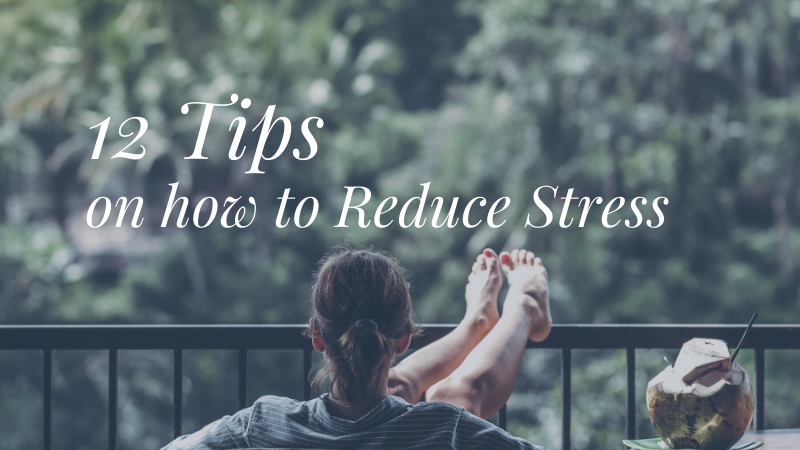Repetitive exposure of the stress response on our body is proven to lead to long-lasting psychological and physical health issues; these include cardiovascular disease, diabetes, anxiety, and depression.
What is stress?
Stress is the “psychological, physiological, and behavioral response by an individual when they perceive a lack of equilibrium between the demands placed upon them and their ability to meet those demands, which, over a period of time, leads to ill-health”.
Symptoms of stress
Although we all experience stress differently, some common symptoms include:
- Difficulty sleeping;
- Weight gain or weight loss;
- Upset stomach;
- Irritability;
- Teeth grinding;
- Panic attacks;
- Headaches;
- Dry mouth;
- Difficulty concentrating;
- Sweaty hands or feet;
- Heartburn;
- Excessive sleeping;
- Racing thoughts and speech;
- Social isolation;
- Fatigue;
- Lack of impulse control;
- Raised blood pressure;
- Nausea;
- Withdrawal;
- Feeling overwhelmed;
- Self- neglect;
- Obsessive or compulsive behaviors.
The importance to manage stress?
When you are living with high levels of stress, you are putting your entire well-being at risk. Because, stress wreaks havoc on your emotional equilibrium, as well as your physical health. It narrows your ability to think clearly, function effectively, and enjoy life. It may seem like there’s nothing you can do about stress. As the bills won’t stop coming, there will never be more hours in the day, and your work and family responsibilities will always be demanding. But remember, you have a lot more control than you might think.
Effective stress management helps you break the hold stress has on your life, so you can be happier, healthier, and more productive. The ultimate goal is a balanced life, with time for work, relationships, relaxation, and fun—and the resilience to hold up under pressure and meet challenges head-on. However, stress management is not one-size-fits-all. That’s why it’s important to experiment and find out what works best for you. The following stress management tips can help you do that.
Tips on how to reduce stress
after a hard day
Start a stress journal
A stress journal can help you identify the regular stressors in your life and how you deal with them. Each time you feel stressed, keep track of it in your journal. You can write down: what caused your stress, how you felt (both physically and emotionally), what was your response, and what did you do to make yourself feel better?
Deep breathing
Take a deep breath. Hold it. Now let it out… do it slowly. Count to 7 as you let out your breath. Feel the tension and stress flowing out of you with your breath. Repeat 3-10 times, as necessary.
Take a walk
Try walking outside for 20-30 minutes several times per week to relieve stress and give your mind a boost. Walking boosts stress-busting endorphins. Walking boosts endorphins, which can reduce stress hormones and alleviate mild depression.
Get outdoors
Linking with walking, getting some fresh air, and spending time in nature has been linked to stress reduction and also improved memory and attention. Also, leave the phone at home it’s good to disconnect from the outside world and clear your head.
Manage your time better
Poor time management can cause a lot of stress. Because when you are stretched too thin and running behind, it’s hard to stay calm and focused. So try to not over-commit yourself- avoid scheduling things back-to-back; Prioritize your tasks; break projects into small steps, and delegate responsibility.
Read
It can relax your body by lowering your heart rate and easing the tension in your muscles. Research shows that reading can reduce stress by up to 68%. It also works better and faster than many other stress-reducing techniques.
Meditate
Sit somewhere quiet, close your eyes, relax, and focus on your breathing. When things pop into your head, just acknowledge them and allow them to leave, and then focus again on your breathing. Do this for as long as you want, and then take a couple of cleansing breaths.
Laugh
Make time for fun and relaxation. Watch a funny movie/TV program or hang out with friends and family and you’re guaranteed to have a laugh. Connect with others.
Nap
Taking only a 20-30 minute nap can reduce the number of stress hormones in the body as well as improving your focus and emotional stability.
Exercise
Physical activities are a huge stress reliever and it increases your overall health and your sense of well-being, which puts more pep in your step every day. But exercise also has some direct stress-busting benefits. It pumps up your endorphins. Physical activity helps bump up the production of your brain’s feel-good neurotransmitters, called endorphins.
Music
Chill out and listen to your favorite music. Playing calm music has a positive effect on the brain and body, can lower blood pressure, and reduce cortisol, a hormone linked to stress.
Good diet
When we are stressed we often forget to eat well and resort to using sugary, fatty snack foods as a pick me up. Swap the junk foods for fruits and vegetables, also fish with high levels of omega-3 fatty acids have been shown to reduce symptoms of stress.

